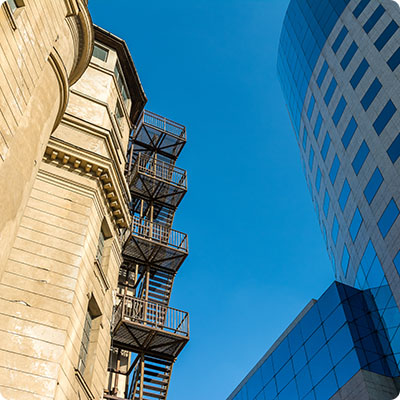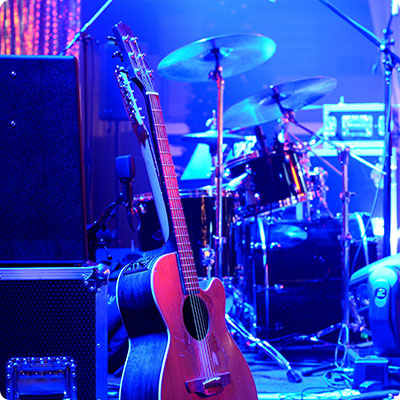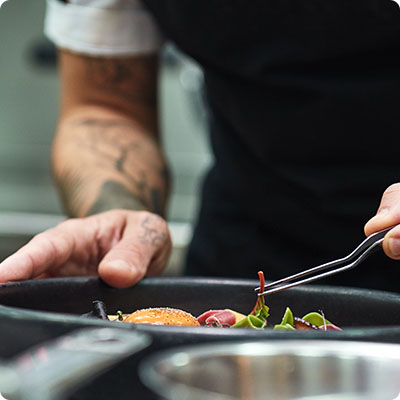Organize your stay Paraguay
 Money Paraguay
Money Paraguay
The official currency is the guaraní (PYG) noted Gs in this guide, as seen in everyday life. Banknotes of 2,000 Gs (purple), 5,000 Gs (red), 10,000 Gs (brown), 20,000 Gs (celestial blue), 50,000 Gs (beige) and 100,000 Gs (green). The banknotes are all the same size and, given the number of zeros, they are easier to distinguish by their colours than by counting the zeros! The 2,000 and 5,000 Gs banknotes, which are the most widely circulated, are made of polymer (plastic), which makes them much more resistant, especially to moisture. Coins of 50, 100, 500 and 1,000 Gs. Pennies are no longer used.
The guarani is one of the oldest (1943) and most stable coins in Latin America. In February 2020: 1 € was worth around 7 000 Gs, 1 US$ around 6 500 Gs. The use of the bank card is common in Asunción and in the big cities, much less in the countryside. The Visa card is accepted everywhere, some ATMs also accept MasterCard, Cirrus and Maestro. Outside the departmental capitals, there are few ATMs, or those of the Banco Nacional de Fomento, which do not accept international cards. Most ATMs issue either guaraníes or US dollars. If you need to send or receive money, there are Western Union and MoneyGram branches everywhere. Paraguayans make more use of the Giro Tigo services of the telephone operator Tigo. Even without a Tigo phone line, you can go to a "Punto Tigo Money" pharmacy. Tigo charges 4% of the transfer amount if the transaction is made between phones, 5% if it is made from a Punto Tigo Money. As for the exchange offices (casas de cambio), they are mainly concentrated in Asunción and Ciudad del Este, and few in the rest of the country. Be careful, only banknotes in good condition can be exchanged (without writing on them or tearing) and they must not be older than the year 2000.
 Budget & Tips Paraguay
Budget & Tips Paraguay
Life in Paraguay is very affordable for the European or North American tourist. Asunción is one of the cheapest capitals in the world for expatriation and it is a very affordable destination even for budget-conscious travellers. National museums are free, public transport, hotels and restaurants are very cheap. The most important items in a travel budget are car rental (starting at around US$ 50 per day) and ecotourism excursions to remote rural areas, such as the Chaco or Pantanal. By eating local, travelling by bus, sleeping in hostels and posadas turísticas, you can travel for around 20 euros per day and per person. With a little more comfort and leisure, count between 25 and 60 €. For top-of-the-range, with accommodation in luxury hotels and estancias, car rental and excursions such as animal safaris, plan between 60 and 200 €. The euro/guarani exchange rate will cause the cost of the stay to vary significantly, as will the season (prices triple in some hotels in Encarnación during the carnival, for example). Concerning tips (propinas). In restaurants worthy of the name, it is customary to leave 10% of the cost of the meal for the service. Many museum guides are volunteers. They'll only get paid what you give them. 30,000 Gs is a reasonable tip, but you can tip more obviously, especially in a group. Bargaining is not common in Paraguay, even in the markets. On the other hand, you can negotiate a fare for a taxi ride that seems overly expensive (if there is no meter and before you make the trip).
The prices shown generally include the IVA (Impuesto al Valor Agregado). This value added tax is one of the lowest in Latin America (10%, or 5% on certain products in the market basket).
 Passport and visas Paraguay
Passport and visas Paraguay
Your passport must be valid for at least 180 days on the date of entry into the country. No visa is required for European Union citizens for a stay of less than 90 days. Beyond that, a visa to extend your stay for 90 days can be obtained after some formalities at the Dirección general de Migraciones in Asunción - www.migraciones.gov.py - Caballero 201 c/ Eligio Ayala - ✆ (595) 21 446066 /492908). Its value is approximately 50 €. But the easiest way is to leave the territory and come back with a new entry stamp (this can be done several times, there is no limit in the year). Canadians, on the other hand, require an arrival visa, issued for a period of 90 days, which is paid for in cash on arrival at Silvio Pettirossi International Airport (more complicated via the Paraguayan Consulate in Canada). The cost of the arribo visa at the beginning of 2020 was US$ 150. As for the international certificate of vaccination against yellow fever, it is required for travellers coming from Brazil.
 Driver's license Paraguay
Driver's license Paraguay
Renting a car is the best way to discover the rural areas of Paraguay. The main rental agencies are present in Asunción, with offices at the airport, as well as in Ciudad del Este and Encarnación. The minimum age to rent a vehicle is 21 years old. The foreign driver's licence is valid on Paraguayan territory for a period not exceeding 90 days (your passport will be requested during a check to verify your entry stamp). Rental rates are higher than in France and beware of kilometre limits on the rental contract. Travelling by car is very pleasant in the Paraguayan countryside, where there is little traffic. But the excursion can quickly turn into an ordeal in the event of a breakdown or going off the road in an isolated area. It is also not recommended to venture into the Chaco (if you leave the Ruta Transchaco) without a local and a good map and compass (in addition to GPS or applications such as Waze or Maps Me). Road signs are rare and if you go off the main roads, you are likely to get lost and find yourself without a telephone network. It is then important to have reserves of fuel, water and food. It is also best not to drive at night, the roads are not lit and animals cross without warning.
 Health Paraguay
Health Paraguay
The main tropical diseases present in Paraguay are transmitted by mosquitoes. While there have been no cases of malaria since 2011, and no cases of yellow fever since 2009, dengue fever returns every year during the summer, causing thousands of hospitalizations and tens of deaths. This virus common in tropical countries is transmitted by the Aedes aegypti mosquitoes, the same vector of the Zika and chikungunya viruses. Dengue fever results in a flu-like syndrome (fever, headache, severe joint and muscle pain). There is no preventive treatment, covering clothing and an effective mosquito repellent lotion are the best defence against this virus. It is strongly recommended to consult a doctor in case of fever and to drink water regularly. However, never take aspirin
 Mandatory vaccination Paraguay
Mandatory vaccination Paraguay
No vaccinations are required to enter Paraguay. However, it is recommended to check its recalls of universal vaccines: DTP (diphtheria-tetanus-polio), typhoid, hepatitis A and B, and in children rubella-mumps-measles (MMR). Vaccination against yellow fever is recommended and mandatory for travelers to and from Brazil. The vaccination certificate can be requested by the authorities at the border (the vaccine must have been given at least 10 days before entry into the territory). It can be obtained free of charge in Asunción from the Ministry of Health (Av Pettirossi esq. Brasil). The rabies vaccine is also recommended for special conditions of stay. Ask your doctor or an international vaccination centre for advice.
 Security Paraguay
Security Paraguay
Paraguay does not have a high level of insecurity, especially compared to its Latin American neighbours. Assaults on tourists are rare, but there has been an increase in common crime. It is therefore advisable to take the usual precautions as a traveller, always an easy target in a foreign country. Exercise vigilance and discretion, do not display outward signs of wealth by ostensibly carrying valuables, and be careful when leaving exchange offices or cash dispensers. Leave your passport safely at the hotel (keep a photocopy of the main page and the country entry stamp with you), and avoid taking deserted streets at night (taxis and Uber are there to take you back). Some popular districts and suburbs of the capital are to be avoided day and night (La Chacarita for example in the heart of Asunción), others especially at night, such as the Mercado Cuatro. In the event of aggression, do not resist, in Latin America aggressors do not hesitate to use their weapons. The Ministry of Foreign Affairs advises against visiting certain isolated areas in the northeastern part of the country, due to the presence of drug trafficking groups and the EPP (Ejército del Pueblo Paraguayo), a Marxist-Leninist guerrilla group that is said to number only a few dozen individuals.
 Time difference Paraguay
Time difference Paraguay
GMT -4 hours from the first Sunday in October to the last Saturday in March (summer time), GMT -3 hours during winter time the rest of the year. So there is a 4-hour gap with France during the European winter (which corresponds to the Paraguayan summer), 6 hours the rest of the year. In January, when it's 4pm in Paris, it's noon in Asunción. In July, when it's 4pm in Paris, it's 10am in Asunción. But it gets more complicated for a few days in October, when France is still on summer time (end of October) and Paraguay has already switched to summer time (first Sunday in October)... Then there is a five-hour time lag.
 Spoken languages Paraguay
Spoken languages Paraguay
Paraguay is one of the few states with two official languages: Spanish and Guarani. These languages are sometimes mixed in a dialect called jopará. In Asunción, more Spanish and Jopará are spoken than in the rest of the country, where Guarani is the most widely used language. The more affluent (and urban) classes speak more Spanish, while Guarani is the only language used in many rural areas. In some colonies, German, Plattdeutsch (Mennonite language), or Japanese is spoken as a first language! Portuguese is well spoken as a second language, due to the presence of many Brazilians and Paraguayans of Brazilian origin (the "Brasiguayos"). English is spoken very little, and French even less!
 Communication Paraguay
Communication Paraguay
If you haven't installed WhatsApp yet, you might want to think about it: in Paraguay, this application is used much more than the traditional mobile phone system, both for sending messages and photos or videos, and for voice calls. For local or international calls, there are few telephone booths left in the street, but centros de llamadas have taken over, and above all, the Compañía Paraguaya de Comunicaciones (Copaco) has call centres in most cities, with a wide range of hours (7am-10pm). In terms of fixed Internet access, few households in rural areas are equipped with it and broadband is still a scarce commodity outside the major cities. With the development of mobile Internet (up to 4G+ in the capital) and free Wi-Fi in some public places and in most hotels, there are fewer and fewer Internet cafés. However, most shopping centres have them, and they have the advantage of being open on Sundays. Finally, as far as we know, Paraguayans open their mailboxes very little, but are completely addicted to social networks, such as Facebook or Instagram.
 Electricity and measurements Paraguay
Electricity and measurements Paraguay
The current is 220 V / 50 Hz, almost the same as in France (230 V / 50 Hz), so no transformer is needed. The wall sockets (type C) are compatible with the male plugs of our devices. No need for an adapter, and if you need one, it's easily found at local hardware stores. Weight is measured in kilograms, volume in litres and distances in metres and derivatives. Temperatures are given in degrees Celsius.
 Luggage Paraguay
Luggage Paraguay
Consumption fever is also rife in Paraguay. You won't be facing a product shortage. In summer and mid-season, bring light, loose clothing that dries easily, a pair of flip-flops, a swimsuit and a small piece of wool for the air-conditioned areas. In winter (late mid to early September), bring warm clothes for the morning and evening. Some accessories always useful: first aid kit, headlamp, Swiss Army knife, padlock, binoculars, silk meat bag, sleeping mask, earplugs®, sun cream, sunglasses, headgear, umbrella..
















